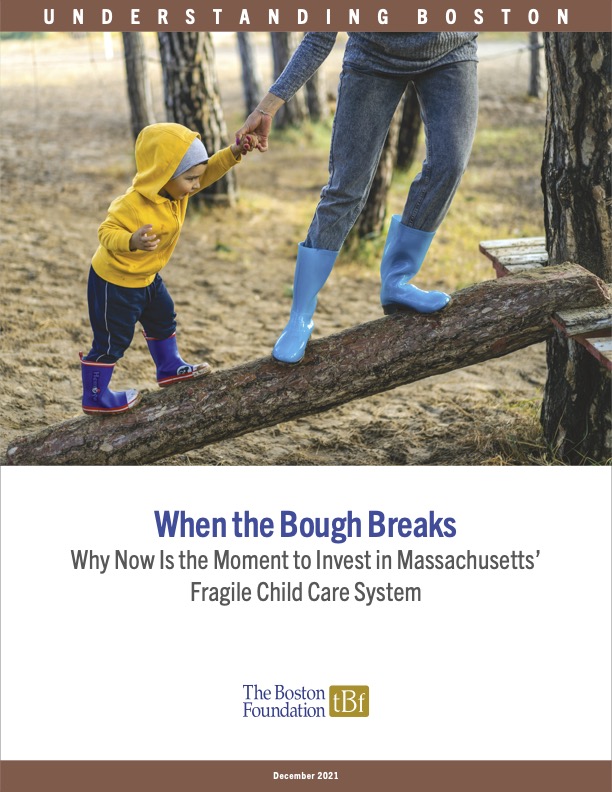New Boston Foundation report underscores critical need for investment in early education and child care
Report captures impact of system failures on parents, childcare workers, businesses and families, and highlights federal and state efforts to reduce the burden
December 13, 2021
Boston – The COVID pandemic has pushed the state’s childcare system to the brink of collapse, according to a new report on the system commissioned by the Boston Foundation. The report, entitled When the Bough Breaks, brings together data and interviews from families, businesses, advocates and child care center operators to highlight the strains on the system that were evident before the pandemic, but have been exacerbated further in the past 18 months.
“The report highlights the stressors on an early childhood system that often provides high quality, but at an unaffordable price for parents, and with pay levels for child care workers that are simply not a living wage,” said Elizabeth Pauley, Associate Vice President for Education and Health and Wellness at the Boston Foundation. “Over the last five years, 1-in-5 child care providers have closed their doors, and those that remain are under constant strain.”
The impact of the situation falls disproportionately on caregivers of color, who are more likely to be low-wage workers, more likely to have been directly affected by job or housing loss during the pandemic, and more likely to rely on family-based child care providers – those most likely to have closed during the pandemic.
In conversations with providers, parents, and advocates, author Sarah Jackson brings to light the myriad impacts of a dysfunctional system – from center operators without enough staff to parents whose child care costs more than their take-home pay from work. Advocates highlighted the impact on education and the economy, with women leaving the workforce and children missing out on critical early screenings for interventions such as speech or occupational therapy that can prevent developmental delays and reduce special education needs.
The advocates also highlighted the potential impact of state and federal policies on the system. At the federal level, the Build Back Better Act would provide billions of dollars to create free universal pre-school for all 3- and 4-year-olds, cap child care costs for most families at 7% of income, and raise wages for child care workers. In Massachusetts, the legislation known as Common Start would provide a framework for sharply expanding early education and care over five years, starting with care for families with the lowest income, and again capping child care costs at 7% of family income for most residents. It would also drive higher wages for child care workers and provide more stable, sustainable funding for centers.
Advocates caution that if we fail to take the opportunity now, when pandemic funds are available to implement critical changes, there may not be another opportunity. The report closes on a quote from longtime education leader Turahn Dorsey: “This is something the community can do together,” he says. “If we don’t do what we know works, then shame on all of us.”

